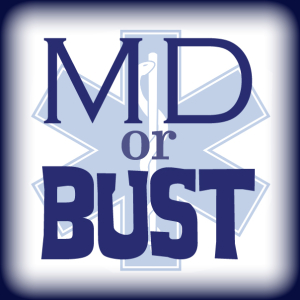Your neck muscles heaved as you sucked in air through pursed lips. Pink puffer, I thought immediately, to my shame. That wasn’t why I was here.
Skin and bone seemed like a gross understatement; you were so thin. It was cancer. Cachexia was the term I learned, memorized. Wasting syndrome, cancer, TNF, IFN-γ. The page in First Aid on the inside of my eyelids. The book has two lines, but it does not have a picture of you.
“So good to see you!” I said loudly. My mother, your nurse: “Yvonne, this is my son. Remember you always wanted to meet him? He’s a medical student.”
That’s not why I’m here.
You stared at me with searching eyes, and opened your mouth. But the shortness of breath (read: dyspnea — that isn’t why I’m here) was too severe, you couldn’t catch your breath, you couldn’t speak.
You did the next best thing: your lip quivered, the edges of your mouth curved upward. A small, beautiful smile. I put my hand into yours, 60 years older than mine, and gave a gentle squeeze. You were so frail, so small, but you squeezed back with urgency, with vibrancy, with strength — not of muscle, but of soul. Your voice was silent, but you spoke with your hands.
I know why I’m here.
My mother has worked at this nursing home for the past twelve years; I was raised on the stories of her patients at the ends of their lives, preparing to move onward, if you believe in that sort of thing. Some pass on peacefully, comfortably and quickly. Others, like Yvonne, are less fortunate — their deaths are protracted. They suffer. My mom has often speculated that these patients are halted in their journey because of some piece of unfinished business — someone to meet, someone to reconnect with, someone to say goodbye to. They are waiting to complete one final task of life.
I am neither religious nor particularly spiritual, but I wonder what you were waiting for.
It was time to leave; I had to go. You struggled to breathe, your brow furrowed, your grip was still firm.
It’s time to go.
Let go.
Numerous studies have documented that medical students lose empathy during clinical years, becoming jaded and pessimistic. This has been linked not only to diminished enjoyment of our work, but also to worse patient outcomes. My goal is to sustain the humanistic values that drive so many of us to medicine, so that, instead of being quelled by cynicism, our idealism can be refined by wisdom.






